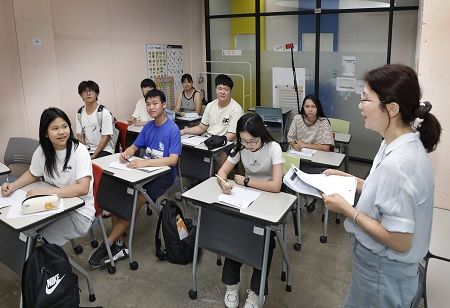- South Korea opens its first Overseas Korean Language Education Support Center in Seoul.
- The center will support Korean language classes in overseas schools with teacher training and customized strategies.
- Over 2,500 schools in 46 countries already offer Korean, with demand steadily growing.
In a major move to strengthen Korean language education worldwide, South Korea’s Education Ministry has opened the Overseas Korean Language Education Support Center in central Seoul. The new facility is the first of its kind and aims to provide structured, long term support for Korean language programs in overseas schools.
Housed within the International Korean Education Foundation, the center will help analyze the educational needs and systems of individual countries, develop localized promotion strategies, and support training programs for local teachers. The goal is to help Korean become a sustainable part of national school curricula around the world.
Ha Yu-kyung, Director General for Global Education Planning, said “Korean language education has expanded significantly over the past decade, but it has often lacked centralized support”. He added “This center will help us respond more effectively to the global demand for Korean, especially as interest grows with the rise of K-pop and Korean culture”.
Since 1999, the Education Ministry has supported Korean classes abroad by funding schools, dispatching teachers, and offering local teacher training. As of 2024, 2,526 schools in 46 countries offer Korean classes to approximately 220,000 students. However, many programs have depended on the resources of individual Korean Education Centers or embassies, leading to inconsistent implementation.
Also Read: Exploring South Korea's Premier Educational Programs for International Students
The new center, led by Professor Kang Seung hye of Yonsei University, will oversee a more coordinated, expert driven approach. It is set to operate under a five year plan, with the goal of making Korean language education more accessible, standardized, and integrated into global school systems.
With this step, South Korea aims to cement the global presence of its language, responding to growing cultural influence and international interest in Korean education.

